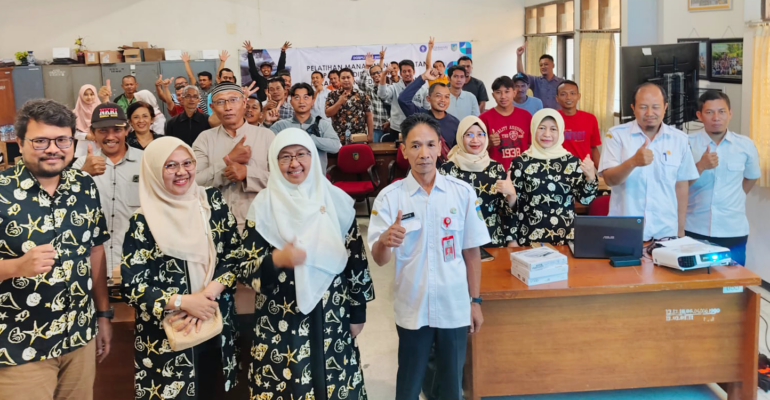Dospulkam, IPB University Lecturer Team Gives Fish Health Management Training for Catfish Power Cultivation in Kediri

IPB University encourages its lecturers to do community service through the ‘Dosen Pulang Kampung’ (Dospulkam) program as part of the implementation of the university tridharma.
In the field of fish farming, the IPB University lecturer team from the Department of Aquaculture (BDP), the Faculty of Fisheries and Marine Sciences (FPIK) carried out services in the Kediri Regency area, East Java in collaboration with the Kediri Regency Fisheries Office.
The program that is run is ‘Fish Health Management Training on Catfish Cultivation’. A total of 50 participants consisting of 40 catfish cultivators and 10 extension workers were trained by IPB University lecturers.
The lecturers involved in this training are Dr Sri Nuryati, Prof Widanarni, Dr Mia Setiawati, and Wildan Nurussalam, SPi, MSi with expertise including in the fields of fish health, fish nutrition and water quality.
“The training discusses fish health management steps which are important steps in fish farming activities. The cultivators and extension workers are trained to implement this management step,” said Dr Sri Nuryati.
With that, she said, aims to control diseases in cultivated fish, including the prevention of diseases and their treatment. Thus, in the event of death in cultivated fish it does not have an impact on economic losses.
Among the materials submitted by the Dospulkam IPB University team are related to disease prevention through the use of vaccines, probiotics, immunostimulants including the utilisation of banana stem waste both for prevention and treatment of fish.
The IPB University lecturers also discussed the effect of vaccination and the application of probiotics on improving the reproductive performance of fish including the degree of hatching eggs and the survival rate of larvae.
“Fish health management is also supported by water quality management. Water quality needs to be maintained so that its existence does not result in a decrease in fish resistance because its low resistance makes it easier for germs in the water to infect which causes fish to become sick,” said Dr Sri.
In addition, he continued, the mother feed also plays a very important role in accelerating the maturity of the fish gonads so that it greatly supports the reproduction of the fish itself.
“Synergy between universities and the community is expected to contribute to sustainable development, including sustainable catfish cultivation that is maintained quality both environmentally safe and safe for consumers,” hoped Dr Sri. (IAAS/STD)



